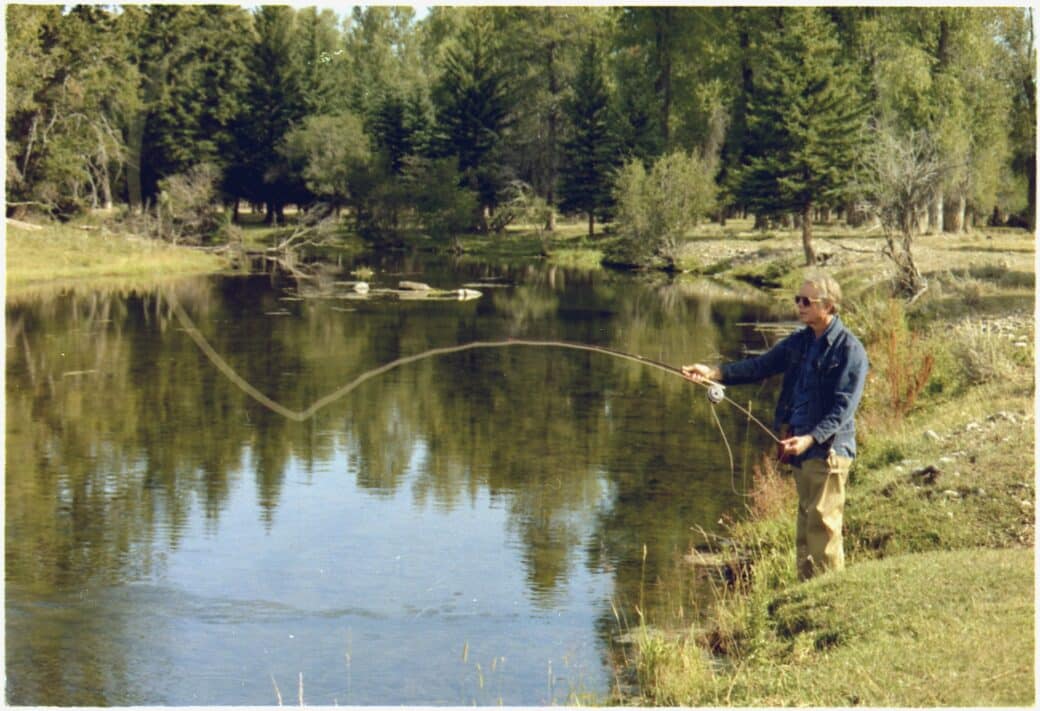Jimmy Carter — A River Retrospective
Oct. 1, 1924 — Dec. 29, 2024
“Many of the most highly publicized events of my presidency are not nearly as memorable or significant in my life as fishing with my daddy.”— Jimmy Carter
Decades ago, when a 1 a.m. bedtime was routine for me after delivering the nightly 11 p.m. sportscast on KOIN-TV, my alarm clock and I had an agreement. You don’t bother me for seven hours and I won’t bother you.
So, when the phone rang at about 5 a.m. one morning and I clumsily cleared the deck on the nightstand trying to grab the receiver, I was suddenly snapped into consciousness by the voice on the other end.
“This is the U.S. Secret Service and I would like to talk to Richard Metsger.” What had I done now? Did I say something disparaging about one of the president’s favorite teams? Should I just confess now and place myself at the mercy of the court?
The agent then laid out the charges.
“Former President Jimmy Carter would like to have you take him fishing.”

Jimmy Carter was a lifelong outdoorsman and the most proactive environmentalist president since Theodore Roosevelt. (National Archive Photo)
Carter was a dedicated outdoorsman and recently finished his book An Outdoor Journal. I had a special outdoor segment weekly in my sports report. I could not turn down the former President, but there had to be a negotiation on terms. We would go fishing for steelhead on either the Willamette or Clackamas, but I wanted to bring my photographer, Dale Birkholtz, and shoot a segment for the nightly news. Both President Carter and the Secret Service agreed, providing I promised to tell absolutely no one else about the plan.
A few days later at about 5:30 a.m., we met on the boat ramp near Oregon City. The Secret Service was there with their own boat to ensure I didn’t accidently dump the President in the frigid winter waters of the Willamette.
Talking to Carter was like talking to your best friend. There was no sense of superiority or privilege. We would talk about our own fishing adventures.
He flashed that famous Carter grin when he told me about one “working weekend” at Camp David. He came out for a brief press conference on Friday and said he would not be coming out again until Sunday evening and would be happy to talk again about any new developments.
“I went back inside and was immediately shuffled out the back door to a waiting car and taken to the helicopter. My gear had already been packed and I was off to Pennsylvania to fish with a friend the rest of the weekend,” he said, laughing. “We came back the same way Sunday afternoon, and I went out and met with the press. They had no idea I had been gone all weekend.”

Former President Jimmy Carter and former First Lady Rosalynn Carter were a driving force behind Habitat for Humanity after Carter’s presidency. (National Archive Photo)
Carter’s fishing experiences informed his political approach. If the first cast did not induce a fish to rise he would alter the rhythm to try a different angle. He was patient, waiting for the precise moment to jam his thumb against the spool and set the hook.
Carter loved the river. The sound of the water rolling over rocks smoothed by the ages spoke to him. Not surprisingly, he was the most truly environmental president since Theodore Roosevelt. His positions were not dictated by political expediency or consultants but by personal conviction. He was the first president to raise concern about climate change.
Carter designated about 162,000 square miles as national parks in Alaska. He had solar panels installed on the roof of the White House. Keep in mind this was the 1970s when most people thought a solar panel was the sunroof on your 1978 Chrysler Cordoba.
President Carter lost to Ronald Reagan in his re-election bid. High inflation, a gas shortage that created long lines at stations, and the kidnapping of Americans by Iran, sealed his fate. His poll numbers were at the lowest of his presidency.
But, out of the ashes of the 1980 Election was forged a new Jimmy Carter. The peanut farmer-turned-president was now the president-turned-humanitarian. He became the face of Habitat for Humanity, building dozens of homes for needy Americans. Efforts by the Carter Center, led by the president and his wife Rosalynn, have almost eradicated a deadly parasitic disease in Nigeria.
He would serve as mediator-on-call for future presidents. Carter traveled the world supporting voting rights, arms de-escalation, and conflict resolution.
“My faith demands that I do whatever I can, wherever I am, whenever I can, for as long as I can with whatever I have to try to make a difference.”
— Jimmy Carter
A man of deep faith, he would teach Sunday School most Sundays at his small, hometown church in Plains, Georgia. Everyone in Plains simply called him Jimmy.
Decades after he left the White House, Americans changed their view on Carter. Changed it dramatically. A poll taken a few years ago by Quinnipiac University found Carter winning in a landslide as the president who had done the most for the country post-presidency. His vote total was almost double that of second place finisher Ronald Reagan.
Forty-four years after his presidency, the river of his life has finally reached the delta and dispersed into the endless sea. But he will continue to speak to us and to those yet to come.


